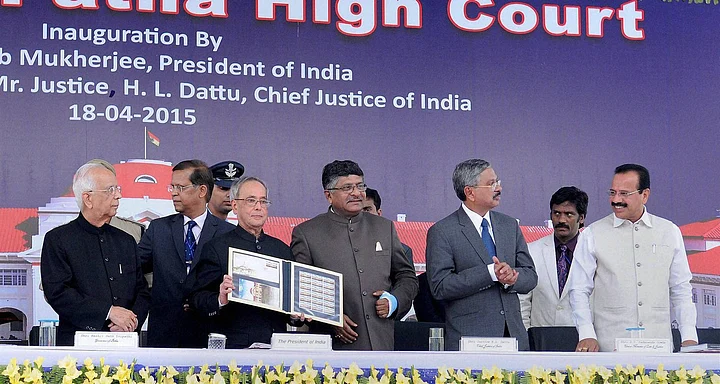The Supreme Court on Friday declared as unconstitutional the law to replace the Collegium system (judges appointing peers) in the higher judiciary.
The court, which quashed the National Judicial Appointments Commission (NJAC) Act, also declared the 99th amendment to the Constitution to replace the Collegium system unconstitutional.
The verdict quashing the NJAC Act was delivered by a five-judge Constitution bench comprising justices J S Khehar, J Chelameswar, MB Lokur, Kurian Joseph and AK Goel. It also rejected the plea of Central government to refer the matter to a larger bench.
While four judges held as unconstitutional the 99th amendment of the Constitution, Justice J Chelameswar differed with them.
The bench also said it was willing to take suggestions to improve the existing system and posted that hearing for November 3.
Senior lawyer KTS Tulsi has expressed disappointment over the verdict.
I do not agree with the judgement. The 99th amendment tried to bring a balance. We need not be so oversensitive I do not know why we start with negative presumption. To strike it down, I think is a bit of a distortion. I am sure that the government will have a rethink on the judgement.
– KTS Tulsi, Senior lawyer
Former Attorney General Soli Sorabjee told CNN-IBN that he was surprised by the apex court’s judgement. “But I understand it must have been a touch decision,” he added.
The Supreme Court verdict is surprising. I will consult with the Prime Minister and other colleagues on this issue. The will of the people can be represented through the Parliament, through the legislature only, it cannot be brought to the notice of the whole world by some other means.
– Sadananda Gowda, Law Minister
Former Supreme Court judge AK Ganguly supported the judgement, saying the independence of the judiciary has been upheld by the Constitutional bench.
In August 2014 government brought the NJAC Act through a constitutional amendment and it got President’s assent on December 31, 2014. It was notified on 13 April 2015.
NJAC, a six member body headed by the Chief justice of India, was formed to appoint the judges to the SC and the High Courts NJAC Act
The NJAC replaced the Collegium system on appointments of judges to the Supreme Court and High Courts that was in effect since 1993.
The SC Advocates on Record Association and many others had filed a batch of petitions in the Supreme Court challenging the NJAC.
The petitioners claimed NJAC was an infringement on the independence of judiciary.
(At The Quint, we question everything. Play an active role in shaping our journalism by becoming a member today.)
